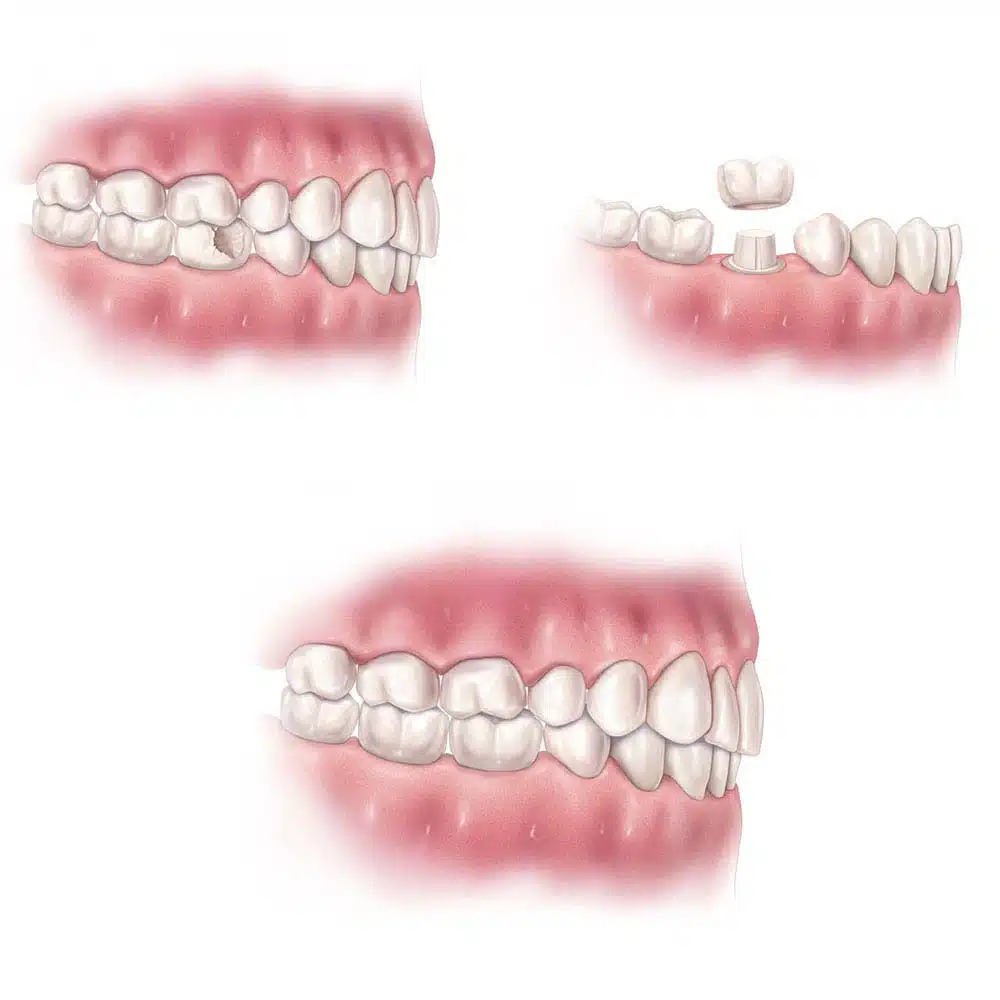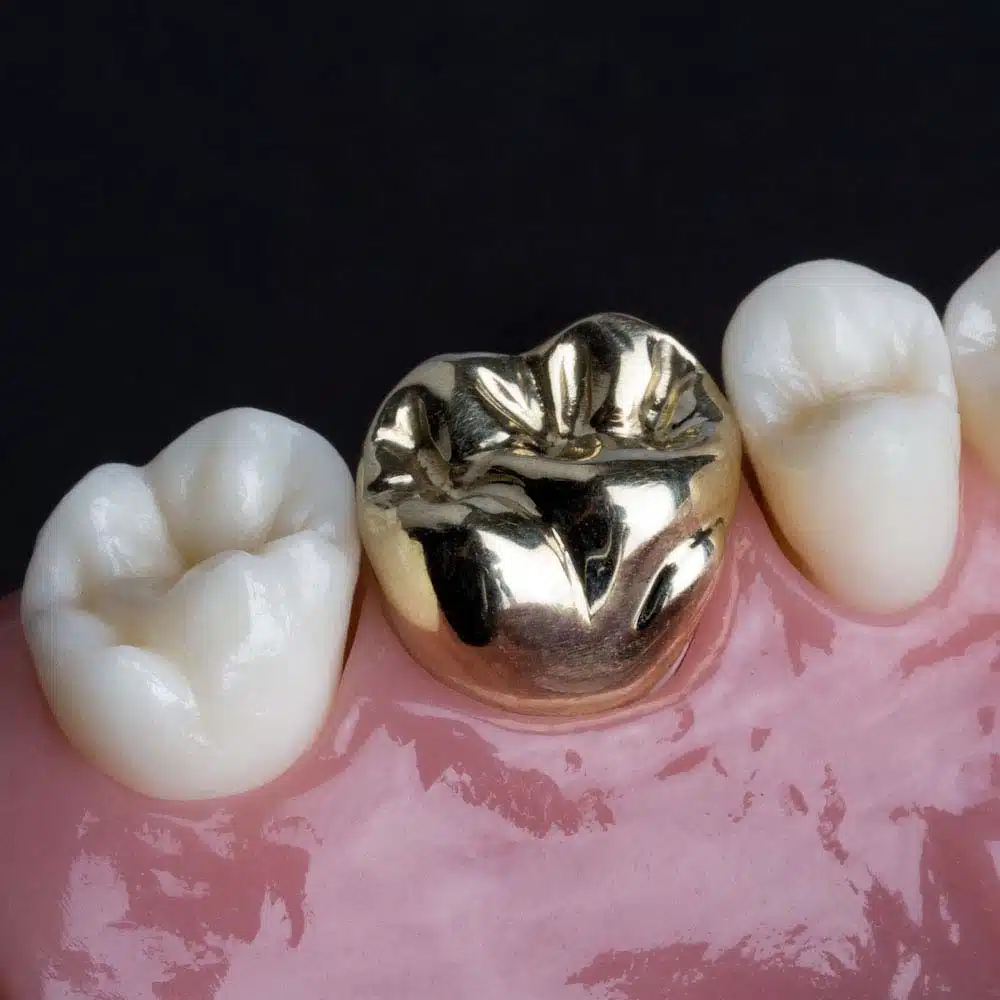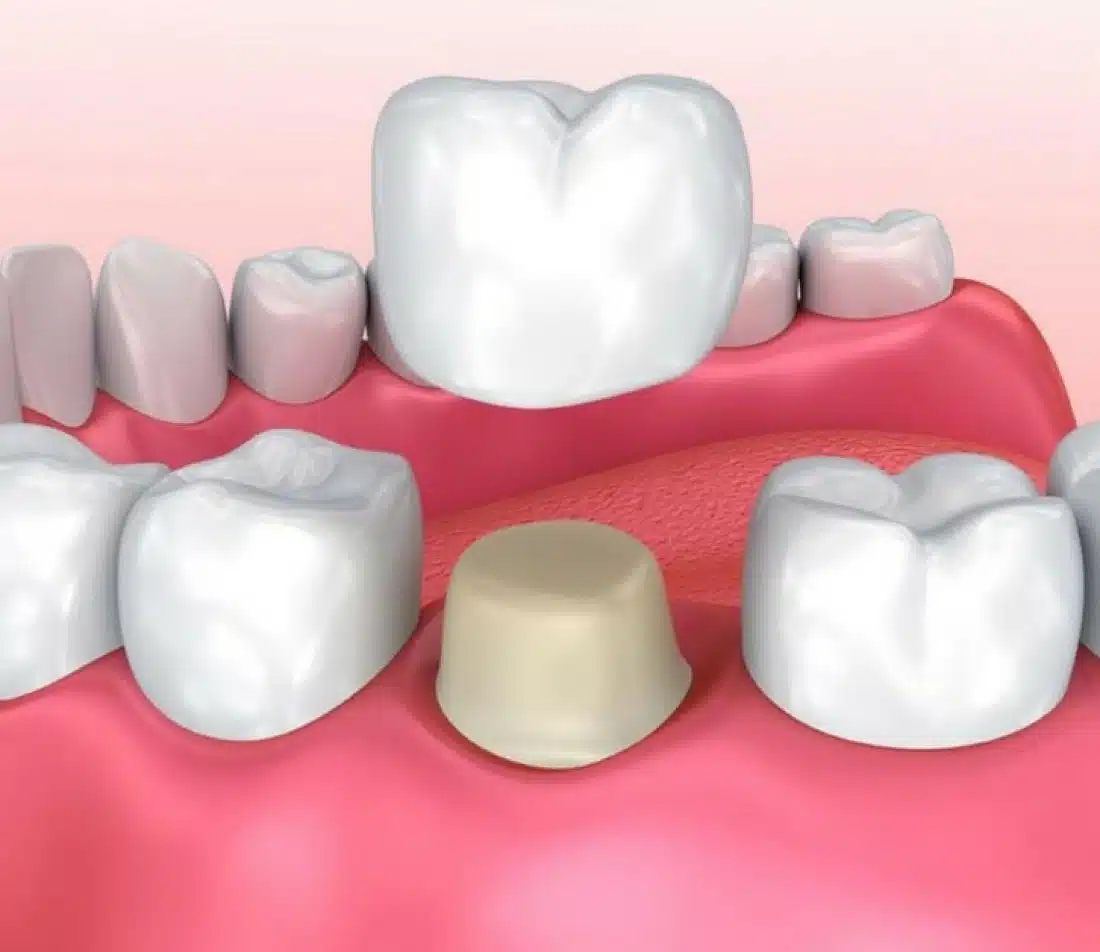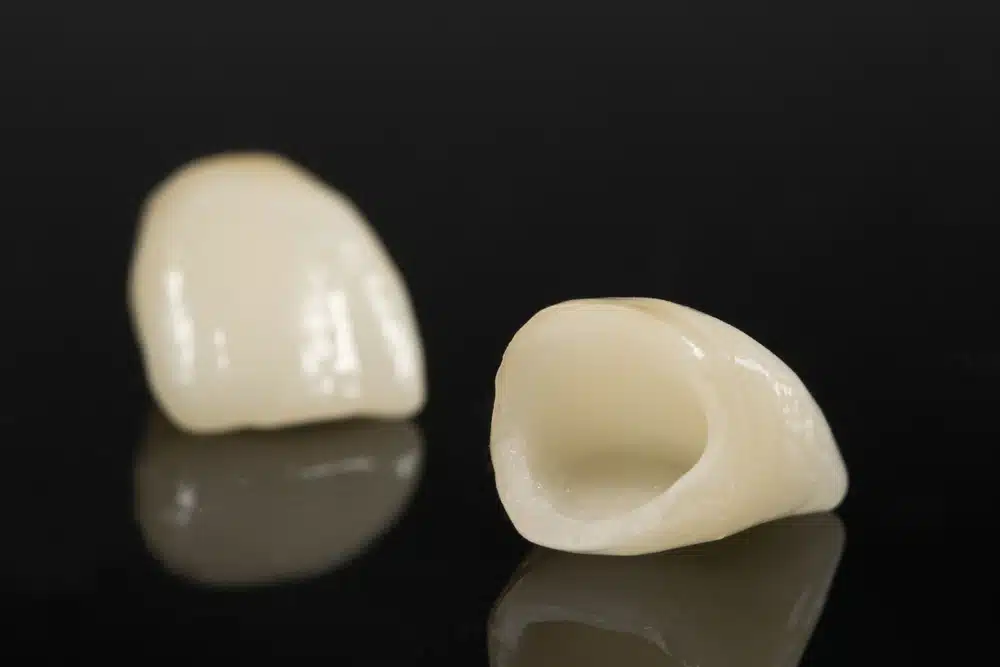Dental Crowns :Getting a dental crown usually takes two dental visits. Dental Crowns Dental Implant At the first visit, the dentist will:
- Numb the neighboring teeth and gum area around the tooth that is getting the crown so you do not feel anything.
- Remove any old and failing restorations or decay from the tooth.
- File down your tooth to prepare it for a crown.
- Fill any cavities.
- Take an impression of your tooth to send to the dental lab where they make the permanent crown. Some dentists can make a crown in their office.
- Make and fit your tooth with a temporary crown.


At the second visit, the dentist will:
- Remove the temporary crown.
- Fit your permanent crown. Your dentist may take an x-ray to make sure the crown fits well.
- Cement the crown in place.
- Dental Crowns Dental Implant
A crown is a tooth-shaped cap that replaces your normal tooth above the gum line. You may need a crown to support a weak tooth or to make your tooth look better.

Why the Procedure is Performed
A crown can be used to:
- Attach a bridge, which fills a gap created by missing teeth
- Repair a weak tooth and keep it from breaking
- Support and cover a tooth
- Replace a misshapen tooth or dental implant
- Correct a misaligned tooth
Talk to your dentist if you need a crown. You may need a crown because you have a:
- Large cavity with too little of the natural tooth left to hold a filling
- Chipped or broken tooth
- Worn down or cracked tooth from grinding your teeth
- Discolored or stained tooth
- Badly shaped tooth that does not match your other teeth
Risks
Several problems can occur with a crown:
- Your tooth under the crown can still get a cavity: To prevent cavities, be sure to brush your teeth twice a day and floss once a day.
- The crown could fall off: This can happen if the core of the tooth that holds the crown in place is too weak. You may need a root canal to save the tooth. Or, you may need to have the tooth pulled and replaced with a dental implant.
- Your crown could chip or crack: If you grind your teeth or clench your jaw, you may need to wear a night mouth guard to protect your crown when you sleep.
- The nerve of your tooth could become extra sensitive to cold and hot temperatures: It may be painful. In this case, you may need a root canal.

Before the Procedure
There are several types of crowns, and each has pros and cons. Talk to your dentist about the type of crown that works best for you. The different types of crowns include: Stainless steel crowns:
- Are pre-made
- Work well as temporary crowns, especially for young children. The crown falls off when the child loses the baby tooth.
Metal crowns:
- Hold up to chewing and teeth grinding
- Rarely chip
- Last the longest
- Do not look natural
Resin crowns:
- Cost less than other crowns
- Wear down more quickly and may need to be replaced sooner than other crowns
- Are weaker and prone to cracking
Ceramic or porcelain crowns:
- Wear down opposing teeth more than metal crowns
- Match the color of other teeth
- Maybe a good choice if you have a metal allergy
Porcelain fused to metal crowns:
- Are made from porcelain covering a metal crown
- Metal makes the crown stronger
- Porcelain part is more prone to fracture than crowns made of all porcelain

After the Procedure
While you have the temporary crown in place, you may need to:
- Slide your floss out, rather than lifting it up, which can pull the crown off the tooth.
- Avoid sticky foods, such as gummy bears, caramels, bagels, nutrition bars, and gum.
- Try to chew off the other side of your mouth.
Call your dentist if you:
- Have swelling that is getting worse
- Feel that your bite is not right
- Lose your temporary crown
- Feel as if your tooth is out of place
Once the permanent crown is in place:
- If your tooth still has its nerve, you may have some sensitivity to heat or cold. This should go away over time.
- Expect that it will take a few days to get used to the new crown in your mouth.
- Take care of your crown the same way you take care of your normal teeth.
- If you have a porcelain crown, you may want to avoid chewing on hard candy or ice to avoid chipping your crown.
Outlook (Prognosis)
When you have a crown, you should be more comfortable chewing, and it should look good. Most crowns can last at least 5 years and as long as 15 to 20 years.
Alternative Names
Dental caps; Porcelain crowns; Lab-fabricated restoration

PFM:
Porcelain-fused-to-metal (PFM) crowns have been considered the gold standard for the repair of damaged teeth. PFM crowns have good mechanical properties, satisfactory esthetic results, and an acceptable biological quality needed for periodontal health. However, PFM crowns have some limitations that may limit their use. For example, the esthetic of PFM crowns is limited by the metal framework and the layer of opaque porcelain needed for masking the underlying metal grayish shade. Recently the cost of precious metals has risen markedly making PFM relatively unattractive from an economic standpoint. All-ceramic crowns have been used over the last four decades as an alternative for PFM crowns to overcome their esthetic limitations. All-ceramic crowns can be made from different types of ceramic, and not all ceramic types have the same physical and esthetic proprieties. Historically, resin-based crowns were the first metal-free crowns to be used, but they were abandoned because of their low fracture resistance. Newer metal-free crowns are increasingly being used in dental practice; these crowns are made from different ceramic materials such as lithium disilicate, zirconia, leucite-reinforced glass, and glass-infiltrated alumina. Policy makers require information on the relative benefits and costs associated with different types of crown materials in order to support reimbursement decisions. The objective of this review is to evaluate the clinical and cost-effectiveness of dental PFM and all-ceramic crowns.














